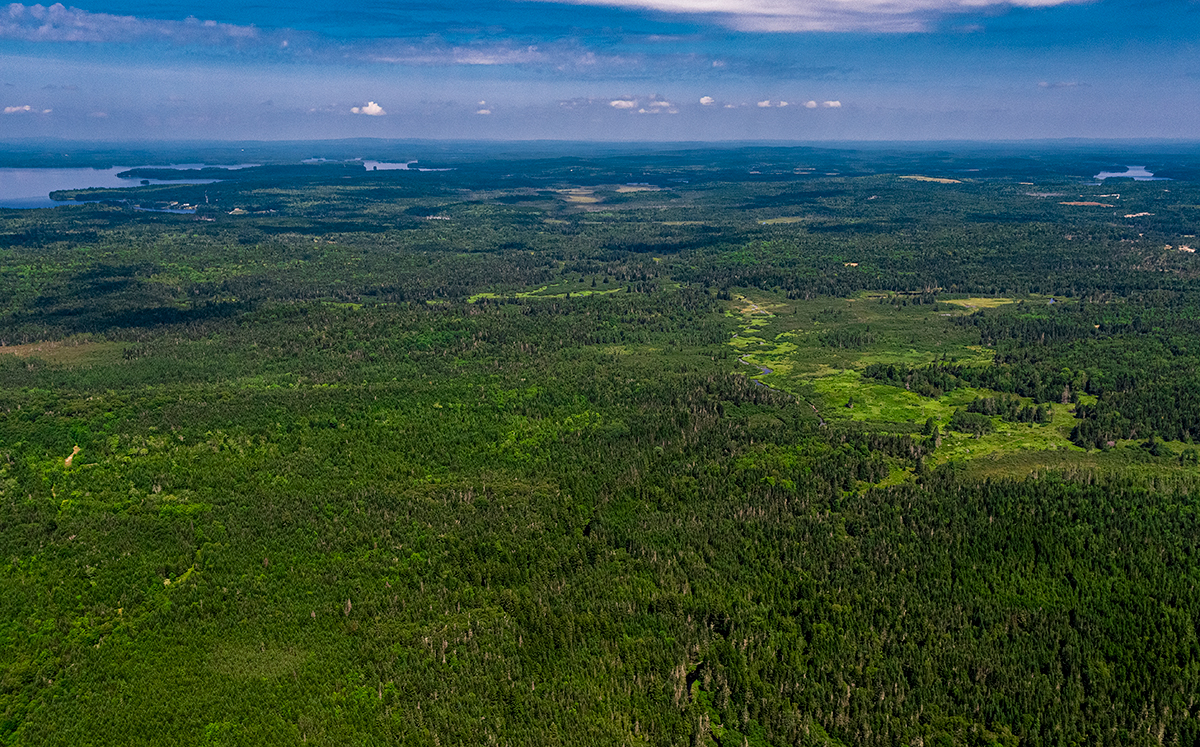New England Forestry Foundation and partners are designing and running a $30-million pilot project to help forest landowners implement climate-smart forest practices and build markets for climate-smart forest products. The program is funded by a U.S. Department of Agriculture (USDA) Partnerships for Climate-Smart Commodities award.
NEFF is leading a five-year pilot project that is organized around three broad goals and areas of work:
A pilot group of New England forest landowners, foresters and loggers will receive climate-smart forestry incentives for practices that store more carbon in working forests, for the range of forestlands and landowners mentioned earlier.
This facet of the program stems from NEFF’s long experience in engaging with family and commercial landowners, which has revealed they are ready to enhance their forest practices if the right incentives are in place to make the economics work. NEFF’s calculations also indicate offering financial incentives for improved forestry is a very efficient and cost-effective way to mitigate climate change compared to technology-based carbon-capture approaches.

Downeast Maine forestlands/Michael Perlman
In balance with wildlands, NEFF will work to leverage the USDA’s generous investment to accomplish its 30 Percent Solution, which calls for significantly expanding the use of NEFF’s own approach to climate-smart forestry—Exemplary Forestry—across the managed portion of the 32 million acres of forestland that spans New England, which makes this pilot project both an important first step and an opportunity to gather lessons learned—and carry them with us from the pilot to this wider landscape.
NEFF can compensate part of the cost for commercial landowners—those who own more than 10,000 acres—to improve stocking and growth rates of sawtimber in their forests or maintain particularly old trees and stands for their exceptional carbon storage.

Woodland owners of 30+ acres can enroll in a climate-smart forestry incentives program in four states. The program provides financial and technical support for woodland owners to improve the health and wellbeing of their lands while also capturing more carbon from the atmosphere.

Formally titled the New England Climate-Smart Commodities Partnership, the project is split into three key goals and areas of work, and will ultimately implement and demonstrate the impact of climate-smart forestry on 66,000 acres. It includes more than 20 partner companies, organizations, and institutions from across New England that represent forest-related industries and have climate interests at the forefront of their concerns.
A diverse group of partners are working together across the region to implement the program as specialty teams bring their expertise to bear on the more technical aspects of the partnership. A full list of partners is available at the bottom of the page.
Enrollment information for producers participating in NEFF’s New England Climate-Smart Commodities Partnership program will be made available as the program launches. Please revisit this page for updates and enrollment information as it becomes available.
The project will encourage the expansion of mass timber construction with a focus on affordable housing. Project partners will work on outreach to affordable housing agencies across the region, engage with mass timber developers and architects, and develop mass timber design specifications for a multi-family affordable housing unit, and more. NEFF will focus on ensuring the material going into new affordable housing comes from well-managed, climate-smart forests. To accomplish this, NEFF will develop climate-smart wood sourcing criteria, protocol, and supply chain tracking that can be inserted into existing green building programs.
We’re confident NEFF’s forestry approaches will store more carbon in the forest and produce more renewable climate-smart products, but everyone involved has to prove these practices work over time. To do so, NEFF and its relevant partner organizations are defining how to verify that carbon is captured and stored from both improved forest management and mass timber construction.
A project team is prepared to conduct detailed tracking and modeling work to verify that practices are conducted as planned and predict how much carbon will be there in future decades. NEFF will bring all its forestry expertise to bear, and take advantage of new research that describes the benefits of building with wood and substituting wood for other more carbon intensive materials.
Get an in-depth look at NEFF’s Climate-Smart Commodities project by watching recordings of past webinars. NEFF held a kick-off webinar in June 2023 titled, “Introducing NEFF’s Climate-Smart Forestry Partnership: A Win for the Forests, Climate, and Communities of New England.” NEFF staff followed up a year later with, “NEFF Climate-Smart Commodities Webinar: Update & Input Session.”
Watch the 2023 webinar, watch the 2024 webinar, and view and download a PDF of the PowerPoint presentations below.
Learn how sustainable wood produced by climate-smart management approaches like NEFF’s Exemplary Forestry make mass timber a particularly powerful tool in the fight against climate change. Viewers can also discover how mass timber is assembled, and how it stores carbon.
This USDA program called for project proposals from partnerships, and finding and connecting with the right New England Climate-Smart Commodities Forest Partnership participants has been one of the most impactful parts of this process for NEFF staff members. Every partner to join in has only made the project stronger and NEFF’s understanding of the pilot’s potential richer.
Participating Producers
Participating Loggers & Foresters
University of Maine Assistance With Program Design and Implementation
Monitoring, Verification & Reporting
Supporting Organizations